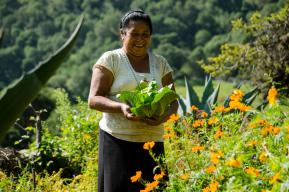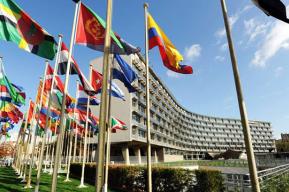Article
UNESCO launches the project “Social Media 4 Peace” in Colombia

The event, entitled “Countering disinformation and hate speech to promote peace in Colombia,” was held in Bogotá in a hybrid format, gathering around 70 academics, diplomats, journalists, creators of digital content, representatives of civil society organizations, and the broader public, which had the opportunity of attending in person and online.
“This project brings an enormous opportunity for Colombia as it offers a Latin American perspective to understanding the various dimensions of the use and impact of social media on the fundamental rights of people, peace, and democracies”, stated Mireia Villar Fornern, the United Nations Resident Coordinator in Colombia, in her opening remarks.
The better we know the information ecosystems, the better we will be equipped to use them for positive aspects.
The UNESCO representative for Bolivia, Colombia, Ecuador and Venezuela, Julio Carranza Valdés, welcomed the choice of Colombia as beneficiary country in Latin America. He stressed that the project is aligned with the overall priority of the Colombian government – the construction of firm and long-lasting peace. “It is fundamental to explore the conditions in which harmful content, in particular hate speech and disinformation, is spread to create solutions leading to practices that nurture and encourage a peaceful and harmonious society,” he said.
Funded by the European Union, the project “Social Media 4 Peace” was extended to include Colombia in September 2021, in addition to 3 other countries – Bosnia and Herzegovina, Indonesia, and Kenya, where the implementation started in 2021.
Presenting the project, Adeline Hulin, its coordinator at the UNESCO Brussels Office, highlighted the importance of understanding the specific local contexts for the spread of harmful content online, which is one of the key objectives of the project.
The research conducted shows that local contexts are crucial for adapting and developing frameworks and content moderation policies capable of effectively curbing harmful content online.
At the first panel, representatives of civil society organisations discussed the impact of online harmful content on the offline world in Colombia. “What is often at play is the quality of democracies because hate speech and disinformation emerge especially during election periods with the aim of manipulating and polarizing citizens,” said Juliana Uribe Villegas, Director of Movilizatorio.
The second panel touched upon the complexity of defining hate speech. Raúl Echeberría, Director of the Latin American Internet Alliance (ALAI) underlined that hate speech must be analysed through broader perspectives, “A term that is seen as hate speech in one place may often not be seen as such in another country. It all depends on the local contexts and specific sensitivities within societies,” he said. “That is why it is crucial to involve various actors in determining what are the characteristics of specific types of content and what should be considered harmful content depending on context.”
The event provided a multi-actor space for stimulating and enriching the discussion on the key issues of the project “Social Media 4 Peace” in Colombia. This dialogue was a welcomed opportunity to share knowledge about the existing mechanisms to tackle hate speech and disinformation and explore efficient ways to curb harmful content on social media.
The recording of the event can be accessed through this link.









